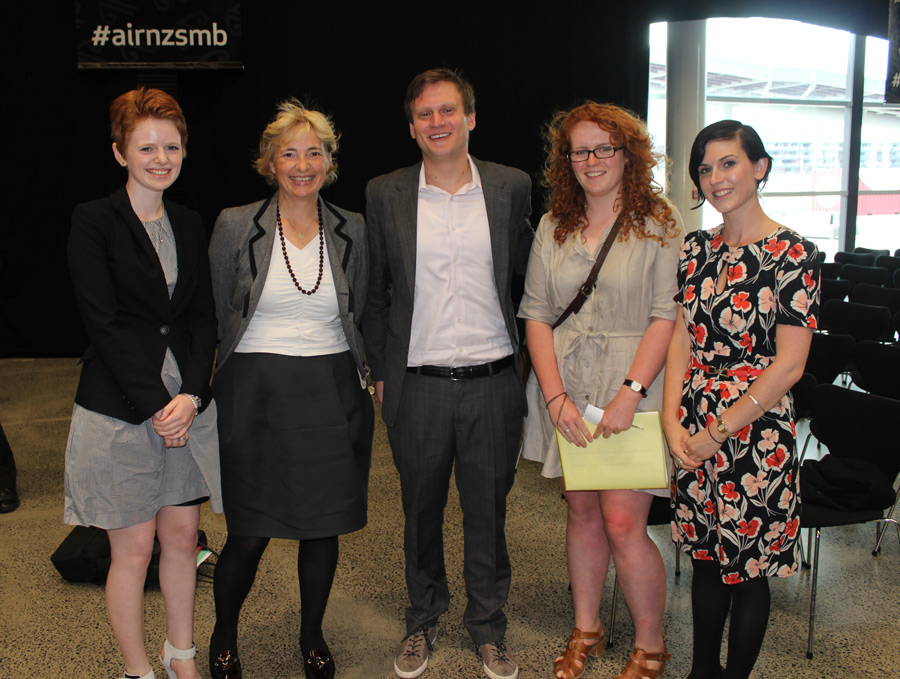‘Don’t be lame.’ One of several key take-home messages from the AirNZ Social Media Breakfast this morning at the Viaduct Events Centre in Auckland. Speakers Ross Dawson, author of the 2002 book Living Network, and Teddy Goff, Digital Director of Barack Obama’s 2012 presidential campaign, provided insights on social media and the opportunities it presents.
Four of us from the McGuinness Institute attended the breakfast, and for each of us, there were some clear points of resonance and lessons that we can now take back to the Institute.
Wendy particularly liked Teddy Goff’s emphasis on creating an experience for a user and ensuring strong and creative content. “How can you give your people a good experience?” Teddy described how for many people engaged with the Obama campaign online, the experience was more than just a political experience, it was social and cultural as well. He described his firm belief that content should come before anything else as ‘a bit old fashioned’ – but he clearly has a point, when creative content like romneytaxplan.com is tweeted millions of times, or when a witty tweet is retweeted 63,638 times. The proliferation of a message becomes possible because the content is attractive and inherently sharable.
Gillian was interested by how futurist Ross Dawson described the digital age as one where ‘geography doesn’t matter.’ He talked about how thanks to the internet, New Zealand’s geographical isolation does not limit its capacity for networking and connectivity. Some of the research Gillian has come across relating to her current project on the future of jobs, argues that this is for the most part a myth – hubs of innovators interacting face to face is still as important as ever. The potential for crowdsourcing talent was particularly emphasised by Dawson, who talked about websites like Kaggle, an online solution for statistical and analytics outsourcing.
Hannah shared our general skepticism on a couple of points raised. Ross Dawson talked about the opportunity for Facebook in the commerce sector. “Instead of meeting a friend to go shopping, you could shop together online.” What was left out of this discussion was the issue of privacy, and in particular the increasing awareness and hesitation of young people to divulge personal details about themselves online, either to avoid cultivating a damaging online reputation or opening yourself up for bombardment by targeted marketing. Teddy Goff touched on this too in the context of campaigning, talking about how by the 2016, or 2020 US elections, it may be possible to target TV ads to a specific household.
Niki particularly enjoyed Teddy Goff’s insights on using social media to engage people. ‘Don’t be lame’, was a key message we all liked, as well as his clear enthusiasm for experimentation. He talked about how part of the success of the Obama digital campaign was the alignment of key values between the internet community and the campaign openness, collaboration, and empowerment. Teddy was very optimistic about the impact of the internet on policial discourse – from his experience on Obama 2012 he talked about how people were far more likely to share positive messages with their friends than negative messages.
We all really liked Teddy’s observation that there is a difference between what people care about, and what they want to be seen to care about. Hollywood gossip is a guilty pleasure, its not something people engage with and share on Facebook and Twitter. People engage with things that matter – well worth the trip to Auckland – thanks Teddy.
Gillian McCarthy, Wendy McGuinness, Teddy Goff, Niki Lomax, and Hannah Steiner at the Air New Zealand Social Media Breakfast

